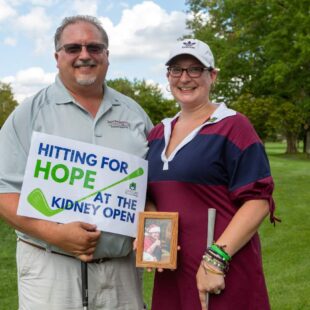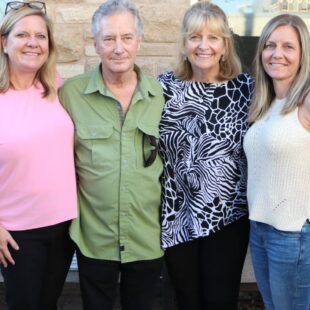FAQs for Communicating with Your Donor Family
Gift of Life Donor Program encourages transplant recipients to write to their donor families.
by Jacquelyn Kates, LSW, CT
Family Support Counselor, Gift of Life Donor Program

Gift of Life Donor Program encourages transplant recipients to write to their donor families. Our Family Support Services Counselors review all correspondence and facilitate the exchange of letters between recipients and donor families.
FAQs for Communicating with Your Donor Family
The hospital did not give me much information about my donor. How can I find out more information about my donor and donor family?
For confidentiality purposes, recipients are not given personal information about their donor or donor family. However, recipients are encouraged to write to their donor family should they wish to learn more.
I do not want to upset my donor family by writing them a letter. When is a good time to write and send the letter?
The best time to write and send a letter is when the recipient is ready. Acknowledging the gift of transplant and thanking the donor family can be an important step in the recipient’s own healing process. If the donor family is not ready to receive a letter, they have the choice to keep it unopened.
Who in my family can write?
Anyone is invited to write to the donor family.
What should I write in my donor letter?
There is no perfect letter. We recommend saying thank you to the donor family for their compassionate decision or honoring their loved one’s wishes. A recipient could share how their life has changed since transplant and what they hope to accomplish with a second lease on life.
Is there anything I should not write?
Identifying information such as last names, addresses, phone numbers, email, and social media accounts may not be shared. If this information is included, it will be removed prior to forwarding to the family. However, make sure recipient includes full name, address, date of transplant, transplant center, and organ received on a separate piece of paper. This information is needed to identify the donor family and forward the letter.
Where should I send my letter?
Gift of Life Donor Program
Attn: Family Support Services
401 N. 3rd Street, Philadelphia, PA 19123
Is it normal to feel guilty after receiving a transplant?
It is very common for recipients to feel guilty after transplant, which is sometimes known as survivor guilt. Speaking to other recipients in a transplant center support group setting or talking with a donor family can be helpful in relieving these uncomfortable feelings. Gift of Life Donor Program and Howie’s House have many donor family volunteers that are open to talk with recipients about their experience.
Can the donor family write to me/my family?
The donor family is able to write to recipients following the same guidelines and process.
When will I hear from my donor family?
Unfortunately, a recipient may not hear from their donor family. Grief is a unique experience and some families may not be ready to write or may not want to.
How can I meet my donor family?
Donor family and recipient meetings are shown in the media, but many recipients do not have the opportunity to meet their donor family. Before a meeting can take place, it is important that there be an understanding of what might occur at a meeting. That’s why Gift of Life Donor Program requires that the donor family and recipient write several letters to build a relationship through correspondence before meeting. Both must express an interest in sharing contact information and meeting. At that point, Family Support Services will send Consent and Release forms.
Once the signed forms are received, personal information will be shared to facilitate direct communication.







